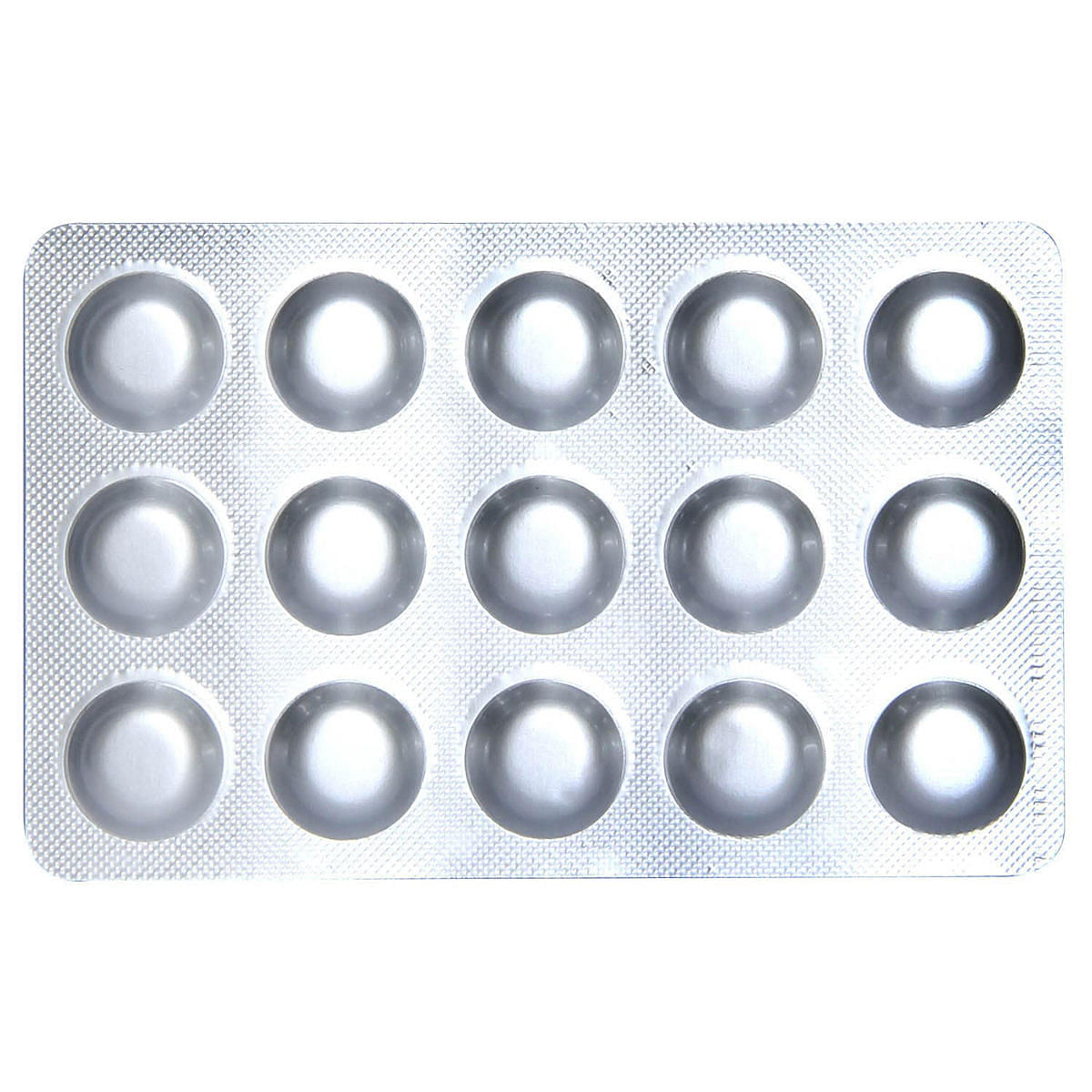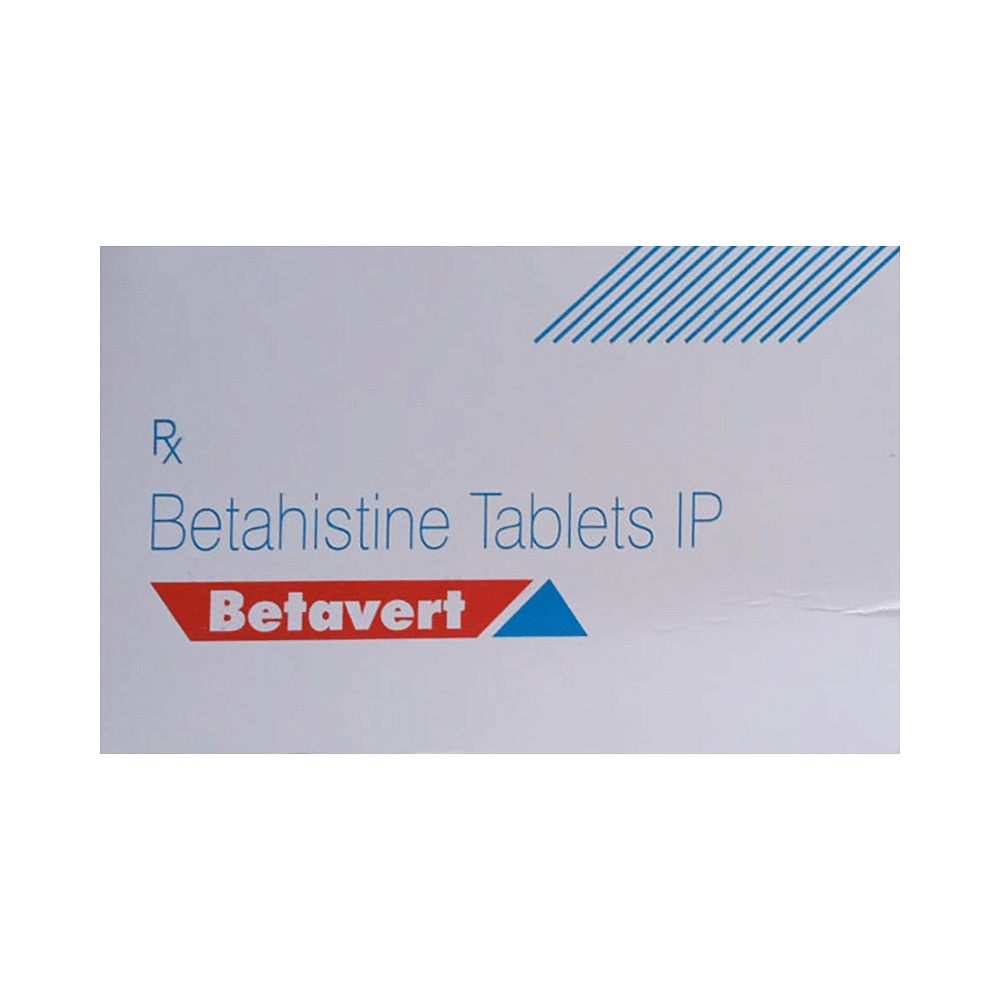
Vermid 8mg Tablet
Manufacturer
Tenet Healthcare
Salt Composition
Betahistine (8mg)
Key Information
Short Description
Vermid 8mg Tablet is used to prevent and treat a disorder of the inner ear known as Ménière's disease, which includes symptoms such as dizziness, ringing in the ears, and loss of hearing.
Dosage Form
Tablet
Introduction
Vermid 8mg Tablet should be swallowed whole with water and taken at the same time(s) each day to get the most benefit. Your doctor will decide what is the correct dose to relieve your symptoms and how often you need to take it. You may need to take this medicine for several months and you should take it for as long as prescribed by your doctor even if you start feeling better. The most common side effects include headache, feeling sick, and indigestion (dyspepsia). You may also get stomach pain and bloating. Taking the medicine with food can help reduce stomach problems.
Directions for Use
Take this medicine in the dose and duration as advised by your doctor. Swallow it as a whole. Do not chew, crush, or break it. Vermid 8mg Tablet may be taken with or without food but it is better to take it at a fixed time.
How it works
Vermid 8mg Tablet is a histamine analog. It works by improving the blood flow in the inner ear which reduces the pressure of excess fluid there. Excess fluid can send signals to the brain causing nausea, dizziness, or spinning sensations (symptoms of Ménière's disease). Vermid 8mg Tablet additionally dampens down the nerve signals sent from the inner ear to the brain relieving the symptoms of Ménière's disease.
Quick Tips
You have been prescribed Vermid 8mg Tablet to relieve vertigo (dizziness), hearing problems, and tinnitus (noise in the ear) associated with Ménière's disease. It can only decrease the number and severity of attacks but may not completely stop them. Taking it with food can help reduce stomach problems. Take it at the same time each day to maintain a steady amount of the medicine in your body. Inform your doctor if you have a history of stomach ulcer, asthma, or low blood pressure.
Related Medicines

Vertin 8 Tablet

Betavert Tablet

Gaurbeta 8mg Tablet

Rohist 8mg Tablet

Betvin 8mg Tablet

Vbeta 8mg Tablet

Bisver 8 Tablet

Vistin 8mg Tablet

Vertiline 8mg Tablet

Dorthist 8mg Tablet
Frequently asked questions
What is Meniere's disease? Does it go away?
Meniere's disease is a disorder affecting the balance and hearing organs in the inner ear. The symptoms include vertigo, fluctuating hearing loss, tinnitus (ringing in the ears), and pressure in the ears. Symptoms can also cause dizziness, which may lead to nausea and vomiting. Treatment depends on various factors. Consulting with a doctor allows for personalized treatment strategies.
Is Vermid 8mg Tablet effective?
Vermid 8mg Tablet is generally effective if used as prescribed by your doctor. Never stop taking it, even if you experience improvement in your condition, as stopping early might lead to symptom recurrence or worsening.
What are the triggers for Meniere's disease?
Triggers for Meniere's disease can include stress, fatigue, emotional distress, additional illnesses, pressure changes, certain foods such as dairy products, caffeine, alcohol, and high-sodium food, and a 2-gram/day low-salt diet might help with symptom control.
What if I forget to take a dose of Vermid 8mg Tablet?
If you miss a dose of Vermid 8mg Tablet, take it as soon as you remember. If it is close to the next scheduled dose, skip the missed dose and take the next dose at the planned time. Do not double the dosage to compensate for the missed one as this could increase the risk of side effects.
Is stress a reason for vertigo?
While stress itself doesn't directly cause vertigo, it can exacerbate existing symptoms by making certain forms of vertigo worse. It is crucial to manage stress levels if you experience vertigo related to other triggers.
What are the causes of vertigo?
Vertigo may be caused by sudden blood pressure changes, dehydration, or a rapid change in posture (e.g., getting up too quickly from sitting or lying down). Other potential causes include motion sickness, certain medications, and inner ear problems such as Meniere's disease and acoustic neuroma. It's important to remember that vertigo can sometimes indicate other underlying conditions like multiple sclerosis or head trauma.
How long should Vermid 8mg Tablet be taken?
The duration of treatment with Vermid 8mg Tablet can vary. Some individuals experience quick improvements, while others may need some time to respond. Always take the medication as prescribed by your doctor and monitor your progress patiently. If you have doubts, it is best to consult them.
What are the common side effects of Vermid 8mg Tablet?
Vermid 8mg Tablet can cause mild stomach discomforts such as vomiting, stomach pain, abdominal distension (swollen abdomen), and bloating. Consuming Vermid 8mg Tablet with food may help reduce these side effects. However, the absorption of Vermid 8mg Tablet might be affected when taken with food.
Is Vermid 8mg Tablet effective?
Vermid 8mg Tablet is generally effective if used as prescribed by your doctor. Never stop taking it, even if you experience improvement in your condition, as stopping early might lead to symptom recurrence or worsening.
What if I forget to take a dose of Vermid 8mg Tablet?
If you miss a dose of Vermid 8mg Tablet, take it as soon as you remember. However, if it is close to the next scheduled dose, skip the missed dose and take the next dose at the planned time. Do not double the dosage to compensate for the missed one as this could increase the risk of side effects.
How long should Vermid 8mg Tablet be taken?
The duration of treatment with Vermid 8mg Tablet can vary. Some individuals experience quick improvements, while others may need some time to respond. Always take the medication as prescribed by your doctor and monitor your progress patiently. If you have doubts, it is best to consult them.


